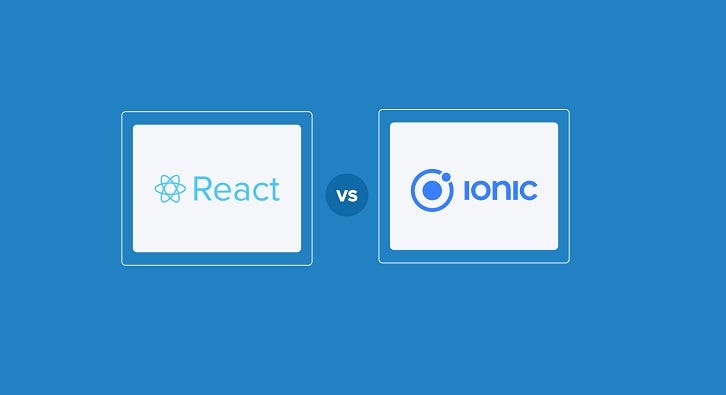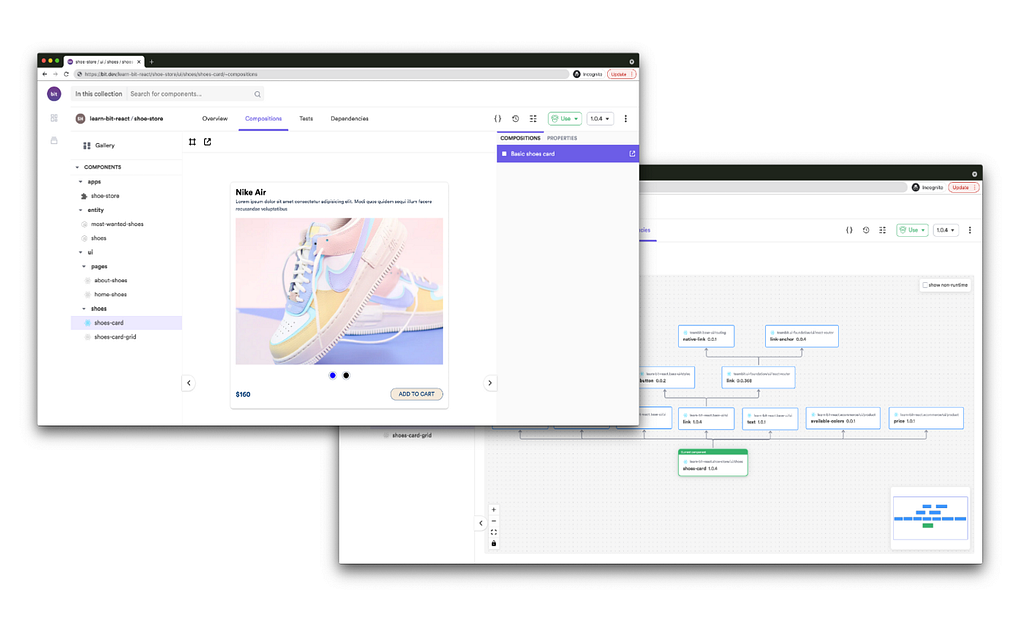This content originally appeared on Bits and Pieces - Medium and was authored by Nikunj Shingala
Which Hybrid Mobile App Framework is Better in 2022?

In the era of the digital revolution, people need access to valuable information and data at their fingertips. Many companies are shifting from desktop websites to smart and easy-to-use mobile applications. Working with a hybrid mobile app framework, It’s easy for developers to write code once and build a mobile application that runs on multiple platforms with no extra effort.
There are a lot of hybrid mobile app frameworks available in the market. Today we discuss one of the two best frameworks for building hybrid mobile applications, Ionic & React Native.
Ionic vs. React Native
Basics
Ionic is a completely open-source SDK for hybrid app development. This hybrid mobile app framework aims to ease a load of developers as they have to code once and deploy cross-platform on iOS, Android, Web, and desktop.
React Native is also a cross-platform solution that helps developers build native mobile apps on Android and iOS. It was open-sourced back in 2015 by Facebook and has gained popularity since then.
Technology Stack
Ionic is more flexible compared to React Native as it uses Angular and Vue to build Ionic apps. It also allows you to use HTML, CSS, and Javascript to build high-quality cross-platform apps.
React Native is a little different as it is written in React that is coded with plain JavaScript and XML markup. React works as a bridge that entreats the native APIs into Objective C or Java.
Performance Benchmark
Ionic can’t build Native apps as it is always approaching hybrid mobile app development. React provides better performance than Ionic as it needs some plugins to access native features.
React Native serves a higher performance rate than the Ionic. Ionic is slow, taking a higher loading time to load Native features. Meanwhile, React uses the same building blocks that Native apps use. It makes React provide better performance and responsiveness.
Popularity
Ionic has 238+ version releases and 41k Github stars. Being used for hybrid app development, it lacks the looks and the featured enhancements like Native Apps.
React Native has more popularity than Ionic as it can build original Native apps. React Native has 346+ version releases with 89.1k Github stars. It uses the same building blocks that Native apps. It increases performance and responsiveness.
Cost to Development
Ionic is far cheaper than React Native because it built a hybrid mobile app that can deploy on multiple platforms with a single-time code.
React Native is a completely open-source platform, developers can easily utilize the system’s library for free, but when it comes to the entire project cost, it will be more costly than the Ionic.
Top 10 Hybrid Mobile App Frameworks in 2022
Developing a smart hybrid application helps to reduce costs and launch its app in the market faster. Before developing your hybrid app, you might get a question: Which is the best hybrid mobile app framework in 2022? Well, take a quick review of the mentioned top 10 best hybrid mobile app frameworks for 2022 and find one of the best ones according to your niche.
- React Native
- Ionic
- Flutter
- Onsen UI
- Kendo UI
- Xamarin
- PhoneGap
- Sencha Touch
- Mobile Angular UI
- NativeScript
Conclusion
As you can see, we have discussed all the major aspects of Ionic vs. React Native, and You can also find the top 10 best hybrid mobile app frameworks. When choosing between these 2 frameworks, it completely depends on the project you are undertaking. Both the frameworks have their advantages in different aspects. We can not say that one framework is better than the other. Try both the frameworks as per your project requirements.
Unlock 10x development with independent components
Building monolithic apps means all your code is internal and is not useful anywhere else. It just serves this one project. And as you scale to more code and people, development becomes slow and painful as everyone works in one codebase and on the same version.
But what if you build independent components first, and then use them to build any number of projects? You could accelerate and scale modern development 10x.
OSS Tools like Bit offer a powerful developer experience for building independent components and composing modular applications. Many teams start by building their Design Systems or Micro Frontends, through independent components. Give it a try →

Read next
Ionic vs React Native in 2022 was originally published in Bits and Pieces on Medium, where people are continuing the conversation by highlighting and responding to this story.
This content originally appeared on Bits and Pieces - Medium and was authored by Nikunj Shingala
Nikunj Shingala | Sciencx (2022-03-08T10:53:57+00:00) Ionic vs React Native in 2022. Retrieved from https://www.scien.cx/2022/03/08/ionic-vs-react-native-in-2022/
Please log in to upload a file.
There are no updates yet.
Click the Upload button above to add an update.
